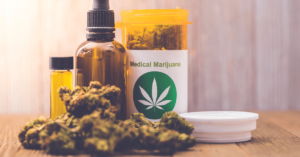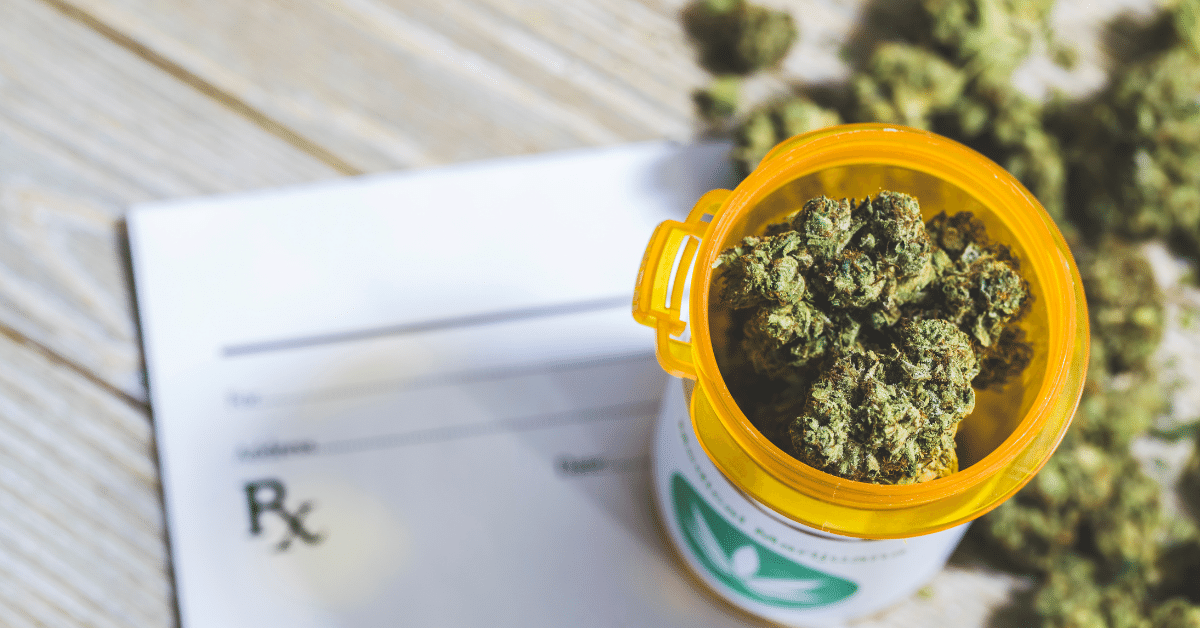Kentucky Governor Andy Beshear established the Team Kentucky Medical Cannabis Advisory Committee in June to help him and other state officials understand concerns and opinions about legalizing medical marijuana. The committee, made up of 17 people, held listening tours to take the public’s temperature regarding the use of cannabis for medical purposes, such as pain relief. Results have been overwhelmingly in favor of legalization. This comes as the opioid crisis rages with peak overdoses and rumors of marijuana laced with fentanyl. What would be the significance of legalizing medical use from an addiction treatment perspective?
What Medical Marijuana is Used For
To be fair, medical marijuana represents much of what big pharma already offers. This presents a means to treat chronic pain, anxiety and other concerns. It so happens to correlate extensively with substance use disorder. The same is the case for many of the other drugs that pharmacies already disseminate.
Marijuana is a controlled substance, so even when states legalize it, the federal government decides its uses. The U.S. Government Accountability Office originally acknowledged the following conditions as valid reasons a doctor may prescribe cannabis to treat.
- Alzheimer’s Disease
- Anorexia
- AIDS
- Arthritis
- Cachexia
- Cancer
- Crohn’s Disease
- Epilepsy
- Glaucoma
- HIV
- Migraine
- Multiple Sclerosis
- Nausea
- Pain
- Spasticity
- Wasting Syndrome
In many of these cases, pain and, to a lesser extent, nausea are not only their own reasons for prescription but also symptoms of other diseases listed. Physicians typically prescribe opioids to treat pain. Opioids, of course, are notorious for causing the development of dependency and addictive behavior. Marijuana is addictive, even if prescribed for medical reasons.
What Medical Marijuana Adds to the Market
 Marijuana is commonly touted as the controlled substance that isn’t chemically addictive. However, addictionologists generally agree with a preponderance of research establishing its correlation with dependency. Many users often end up exhibiting addictive behavior much like they would on opioids. The National Institute on Drug Abuse reports data showing close to a third of marijuana users having marijuana use disorder.
Marijuana is commonly touted as the controlled substance that isn’t chemically addictive. However, addictionologists generally agree with a preponderance of research establishing its correlation with dependency. Many users often end up exhibiting addictive behavior much like they would on opioids. The National Institute on Drug Abuse reports data showing close to a third of marijuana users having marijuana use disorder.
Experts agree the opioid crisis is as perilous now as it’s ever been. Much of the evidence in recent years has come from the rampant spikes in fentanyl overdoses. Usually, anything from Xanax to heroin gets laced with fentanyl, so users easily overdose and rarely survive. Now, civilians are bombarding authorities with questions about marijuana laced with fentanyl.
The argument can be made that legalizing medical use might protect users by giving them safer places from which to obtain marijuana. Dispensaries would be more assured to regulate the substance correctly. On the other hand, the big pharma issues that led to the opioid crisis are still present with marijuana, too. It’s another prescription that gradually builds tolerance in its users, followed by dependency.
Medical Cannabis Advisory Committee Findings
The Team Kentucky Medical Cannabis Advisory Committee, which includes pharmacists, lawyers, health workers and doctors, has organized several town hall meetings to solicit public input on the topic. The legislature reports 150 people attended those meetings in person and that they all brought positive opinions about medical marijuana use. Others who couldn’t attend in person were able to provide input virtually via an online forum. Committee members report 98.5% of all comments supported medical marijuana use.
“The refrain we heard over and over is that: we’re not criminals, we need help with the many times with the terrible, terrible disorders, and we don’t want our commonwealth to make us criminals because we need this help,” said Kerry Harvey, co-chair of the committee and secretary of the Justice and Public Safety Cabinet.
Harvey and his fellow committee members say many participants suffer from serious medical conditions. The Kentucky Narcotics Association, however, publicly opposed the legalization of medical marijuana. The Kentucky House has fielded and approved legislation to legalize medical marijuana twice. Both times, the companion bills in the Senate ultimately stalled.
Public Health Hazards of Medical Cannabis
It’s easier to see signs of a drunk driver than signs that a motorist is high on marijuana. Both alcohol and marijuana impinge upon motor functions related to driving. However, they do so in different ways. Those high due to marijuana generally don’t swerve as much or have the same difficulty focusing on moving forward. Then again, it’s hard to study these things for marijuana because the tolerance of the individual presents such a significant variable in the effects of the high.
It is difficult to establish a relationship between a person’s [tetrahydrocannabinol] blood or plasma concentration and performance impairing effects, according to the U.S. Department of Transportation fact sheet. Marijuana has been shown to impair performance on driving simulator tasks and on open and closed driving courses for up to approximately three hours.
USDOT’s fact sheet shows marijuana’s effects negatively impact handling performance, reaction times, time-distance estimation and several other factors. Louisville already saw driving under the influence as a particular challenge recently. Last year ended with two Louisville police officers arrested for DUI on separate occasions.
It has yet to be seen whether or not legalizing medical marijuana use would cause any similar, statistically noticeable challenges for motorists driving while intoxicated.
If you’re already in the throes of marijuana use disorder, visit Landmark Recovery of Louisville at 4112 Fern Valley Road A or call 502.309.2675.

Choose Recovery Over Addiction
We're here 24/7 to help you get the care you need to live life on your terms, without drugs or alcohol. Talk to our recovery specialists today and learn about our integrated treatment programs.




